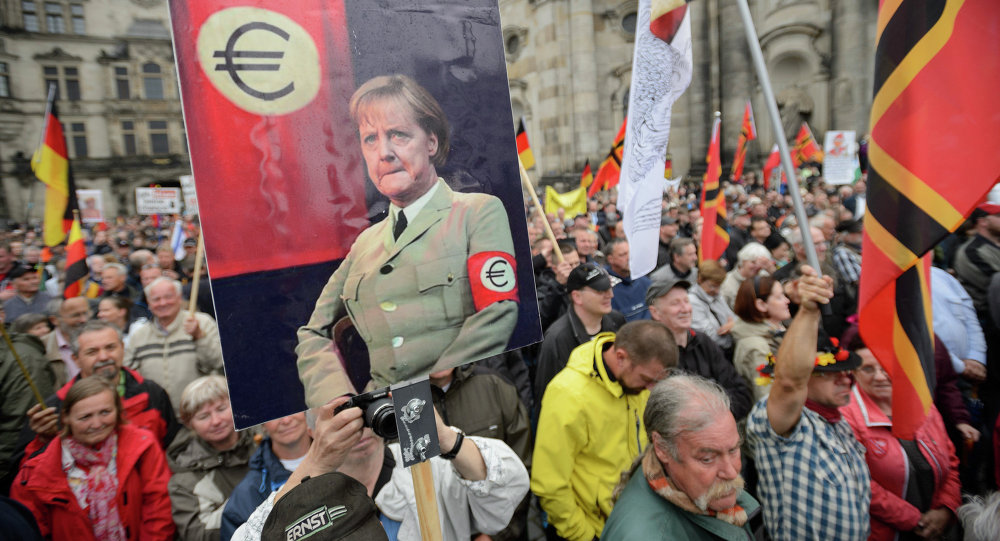Party That Wants To Shoot Refugees Gains Popularity In Germany

NEW DELHI: As anti-immigration rhetoric grows across Europe, one German political party is cashing in. Once a eurosceptic party centered on economic issues, Alternative for Germany (AfD) has become the country’s third most popular political force -- thanks to its anti-immigration stance.
For those who haven’t heard of AfD, the leaders of the party made international headlines recently for wanting to “shoot refugees.” Chancellor Angela Merkel's government rejected AfD leader Frauke Petry’s suggestion that the police be equipped to use firearms against immigrants.
Although the statement sounds absurd, it represents a political crisis in Germany where polls indicate that a vast majority of people believe that the government has lost track of the refugee crisis -- and parties like the AfD are the beneficiaries of that loss of faith. 81 percent of the number of survey respondents told ARD's Deutschlandtrend poll they didn't think the government had the refugee situation under control.
Public opinion in Germany is turning against Chancellor Angela Merkel and her immigration policy, which has brought more than 1 million asylum-seekers to the country in the past year.
Things only got worse after the New Year’s Eve attacks in Cologne, when men believed to have been migrants from North African countries sexually harassed a large number of women.
However, the right-wing, anti-immigration, anti-Muslim sentiment has been gaining momentum in Germany, far before the Cologne attacks or the Paris attacks claimed by the Islamic State that led to an increase in such sentiment across Europe.
Take the example of Pegida (Patriotische Europäer gegen die Islamisierung des Abendlandes/ Patriotic Europeans Against the Islamisation of the Occident), as the group’s rallies drew out thousands of supporters.
In addition to Pegida, another such party is the far-right National Democratic Party (NPD), Germany’s largest neo-Nazi organization that has five lawmakers in the parliament of the eastern state of Mecklenburg-Vorpommern.
Following the Paris attacks, an attack on a Hamburg newspaper office that republished cartoons of the Prophet Muhammad which had originally been printed by Charlie Hebdo in 2006, further contributed to rising tensions.
As tensions increase, so does the violence. After the NYE Cologne attacks, Pakistanis and Syrians were attacked as tensions escalated. Clashes first broke out between far-right protesters and fundamentalist Muslims known as Salafists in Cologne in October 2014. Other incidents of clashes between anti-Islam protesters and police have been reported since.
The situation even prompted German Chancellor Angela Merkel to criticize the anti-Muslim rhetoric. "Of course there's freedom to demonstrate in Germany… But it's no place for agitation and mud-slinging against people who come to us from other countries,” the German chancellor said.
Other political figures have condemned the anti-Islamic protests as well. Justice Minister Heiko Maas told the Süddeutsche Zeitung that the country was living through “a new level of escalation in agitation against migrants and refugees” adding that Pegida was “a shame for Germany.”
Unfortunately, the anti-Muslim, anti-immigration rhetoric seems to be working, as Germans who are frustrated with the current leadership are looking for an alternative. Public opinion in Germany is currently deeply divided, with a definite constituency for the anti-immigration groups.
“Those from the pro-refugee camp are dismissed as naive dreamers. Those against the open-door policy are quickly branded right-wing radicals or Nazis,” wrote Alexander Kudascheff, editor-in-chief of German broadcaster Deutsche Welle. “The political discourse has gone off the rails.”



